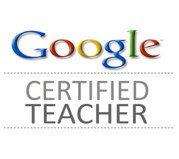Most of the best tools-blogs, wikis, google apps, even photo editors and mind-mapping tools- are available for free online. Other, excellent software is available to be freely downloaded, so why spend any money on software, especially when money in schools is in short supply?
I have a few parts to my answer (and in a follow-up post, I will tell you what I use in my computer lab at school):
First of all, let's remember the old saying about no free lunch. I think this is basically true or, at least, the free lunch only seems free. Maybe it's free drinks and appetizers....not the whole meal. If you think about it, everything costs. There are people working to create these applications; they must get paid. There is server space and other costs involved. Twitter is unusual, in that it is free to use and free of ads-- at least for now. Everyone thought ning was paid for by advertisements, but recently ning announced a monthly fee. Many people who had started nings were left to figure out what to do...try to move the entire community to another space or get stuck paying $19.95/month to keep the established site.
There are plenty more examples, but remember, most sites must get revenue somehow. Either advertising abounds or you get a "lite" version of the service or a trial version, and once you decide it's worth it or you want more from it, you can pay for the "pro" or the membership or pay for an ad-free space. There are some noteworthy exceptions to this, but I do wonder how long those will stay free.
I don't have a huge problem with this concept. I actually appreciate the chance to try something and get hooked (or not) before deciding if it's worth the price. I have upped my membership to a number of services, and I usually do so willingly. Some sites have education accounts that have varying degrees of "free-ness" for educational use. Wikispaces is amazing and much appreciated- they have given away many ad-free sites for K-12 education with, so far, nothing in the fine-print, no long waiting periods to be approved and no take-backs (as in "it was free, but we're taking it back." ) In most cases, I've found that there is something about the educator account that ends up being less than what the paying folks get. But, hey, it is what it is.
There is open-source software. I love the idea of open-source, and I use it when possible, but I have found it to have its limits. When using it with students (which I admit, I haven't done too much), it seems that there is always some issue or other.
If you are looking to buy software, remember that it's not all created (or supported) equal! Some thoughts:
-download the trial version to all of your classroom computers, and let the kids be the judge!
-I personally dislike software with a lot of "bells and whistles" or so-called "educational games" that are really glorified worksheets with games to play in between.
-Ask around. What do other teachers like? Before purchasing anything, however, always try it out yourself.
-Take your time. There is plenty to do on a computer these days without spending a dime on additional software. Figure out what your needs are before thinking about filling them.
-I really like software and sites that are "open-ended." To me, these are the most worthwhile programs in the classroom. Think Tech4Learning, Inspiration, Fablevision, Scratch - programs that give the learner the tools to create and solve problems.
I've always loved this Jaron Lanier quote:
" We already knew that kids learned computer technology more easily than adults. What we're seeing now is that they don't even need to be taught. It is as if children were waiting all these centuries for someone to invent their native language." --Jaron Lanier |
I agree, kids don't need to be taught, per se. But think about the native language analogy. We don't "teach" kids their native language. Yet, most people speak to babies and very young children using simple words, rhymes, repetitions, etc. We know that a child just learning to speak will have a more simple vocabulary.
It is the same with tech skills. A few, carefully chosen software purchases, can provide scaffolding in developing software skills for young students. For example, Kindergarten kids enjoy using Pixie. They can playfully explore the program. It's accessible, fun and they can do more with it as they become more skilled. Yet the interface is similar to that of advanced programs like Photoshop, so they are acquiring skills that are transferable to other applications. Find programs that help children grow into independent and creative computer users.





No comments:
Post a Comment